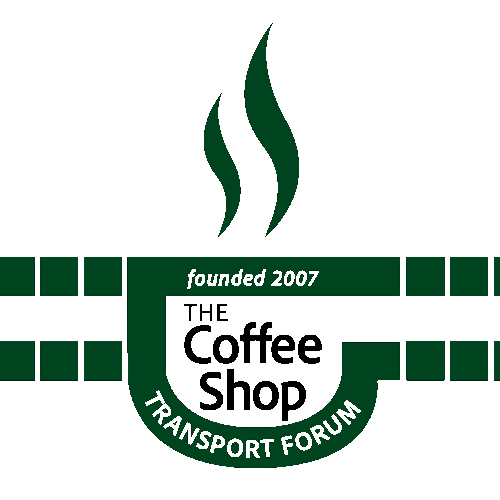| Re: Recycling rubbish and charity shops - something of a minefield? Ongoing discussion Posted by Chris from Nailsea at 06:25, 25th February 2026 |     |
From the BBC:
One in four councils to miss food waste collection deadline
Almost a quarter of English councils will miss an official deadline to introduce weekly food waste collections to all homes, a BBC investigation has found.
The Department for Environment, Food & Rural Affairs (Defra) said "every household in England" would get weekly food waste collections from next month under new legislation, but at least 71 councils told the BBC they would not meet that deadline.
Councils blamed the delay on demand for new specialist vehicles, as well as issues with funding despite more than £340m in grants from Defra.
Environment minister Mary Creagh said councils had also had a "significant uplift in this year's budget" to help "make this policy a success".
"Do it slowly, do it right but let's get on with it," she said. "We have been stagnating at these very low recycling rates for far too long."
Roughly half of councils were not collecting food waste weekly before the creation of the Simpler Recycling legislation, while some have had the collections in place for more than a decade.
It meant not all councils needed to make changes to meet the new rules, but the BBC approached each local authority responsible for waste collection to find out what was happening in their area.
At least 56 of those that will miss the deadline are aiming to launch their service for all households by the end of 2026. Nine could not give an approximate start date.
A further 31 councils have secured agreements allowing for a later start date for their weekly food collections, so will not be viewed as missing the deadline.
When those councils are factored in, more than a third of councils will still not be collecting food waste from all homes by March.
(BBC article continues)
Almost a quarter of English councils will miss an official deadline to introduce weekly food waste collections to all homes, a BBC investigation has found.
The Department for Environment, Food & Rural Affairs (Defra) said "every household in England" would get weekly food waste collections from next month under new legislation, but at least 71 councils told the BBC they would not meet that deadline.
Councils blamed the delay on demand for new specialist vehicles, as well as issues with funding despite more than £340m in grants from Defra.
Environment minister Mary Creagh said councils had also had a "significant uplift in this year's budget" to help "make this policy a success".
"Do it slowly, do it right but let's get on with it," she said. "We have been stagnating at these very low recycling rates for far too long."
Roughly half of councils were not collecting food waste weekly before the creation of the Simpler Recycling legislation, while some have had the collections in place for more than a decade.
It meant not all councils needed to make changes to meet the new rules, but the BBC approached each local authority responsible for waste collection to find out what was happening in their area.
At least 56 of those that will miss the deadline are aiming to launch their service for all households by the end of 2026. Nine could not give an approximate start date.
A further 31 councils have secured agreements allowing for a later start date for their weekly food collections, so will not be viewed as missing the deadline.
When those councils are factored in, more than a third of councils will still not be collecting food waste from all homes by March.
(BBC article continues)
| Re: Recycling rubbish and charity shops - something of a minefield? Ongoing discussion Posted by Mark A at 12:11, 21st January 2026 |     |
That's reminded me of one of my own family memories, Mark. 
**snip** Looking up at the chimney piece above the range in their kitchen **snip**

**snip** Looking up at the chimney piece above the range in their kitchen **snip**
That's put me straight into anecdote mode: the tale told to me by the signwriter who, as a child, had been evacuated to... Woodford Halse... and an encounter with a farmer led to an... intervention... but I'll have recounted *that* one.
Mark
| Re: Recycling rubbish and charity shops - something of a minefield? Ongoing discussion Posted by Marlburian at 09:57, 21st January 2026 |     |
For several days there's been a bit of yellow rubbish in the hedge opposite my house. When I put out my red recycling bin this morning, I peered at it and discovered it was an admonition about the wrong items being put in a bin - from Herefordshire Council, a hundred miles away. (I conscientiously put it in my black bin.)
(Earlier this week, I did an 80-minute perambulation of Tilehurst and was shocked about the amount of litter, mostly recyclable.)
| Re: Recycling rubbish and charity shops - something of a minefield? Ongoing discussion Posted by broadgage at 04:58, 21st January 2026 |     |
My late grandfather had an impressive sized naval mine in his garden, I presume that it was rendered safe.
My late uncle had an impressive and presumably illegal collection of firearms and ammunition.
And much more recently, an agricultural contractor whom I know found a large stash of WW2 weapons, suspected to be intended for use in "behind the lines sabotage" if the germans had invaded. Included a number of Welguns.https://en.wikipedia.org/wiki/BSA_Welgun
| Re: Recycling rubbish and charity shops - something of a minefield? Ongoing discussion Posted by Chris from Nailsea at 19:47, 20th January 2026 |     |
That's reminded me of one of my own family memories, Mark.

I was quite young (maybe six or seven) when we went to visit a farm near Wheddon Cross on Exmoor for a sort of reunion - my maternal family were evacuated there during WW2, a generation earlier.
Looking up at the chimney piece above the range in their kitchen, I was enthralled at the sight of a real gun (probably a 14 bore, single barrel) hung on hooks there. Seeing this, the farmer lifted it down for me to handle - and, I recall, he did explain that he was making sure it wasn't loaded: apparently, Mrs Farmer used it to stroll out into the fields to collect a rabbit or two for the pot.
| Re: Recycling rubbish and charity shops - something of a minefield? Ongoing discussion Posted by Mark A at 17:41, 20th January 2026 |     |
Who among us hasn't, as a child, looked up warily at the unexploded bomb on a friend's grandmother's mantlepiece?
Mark
| Re: Recycling rubbish and charity shops - something of a minefield? Ongoing discussion Posted by Chris from Nailsea at 13:06, 20th January 2026 |     |
Rather more of a minefield than recycling? From the BBC:
Bomb squad called after 'ammunition' handed in to Swindon charity shop
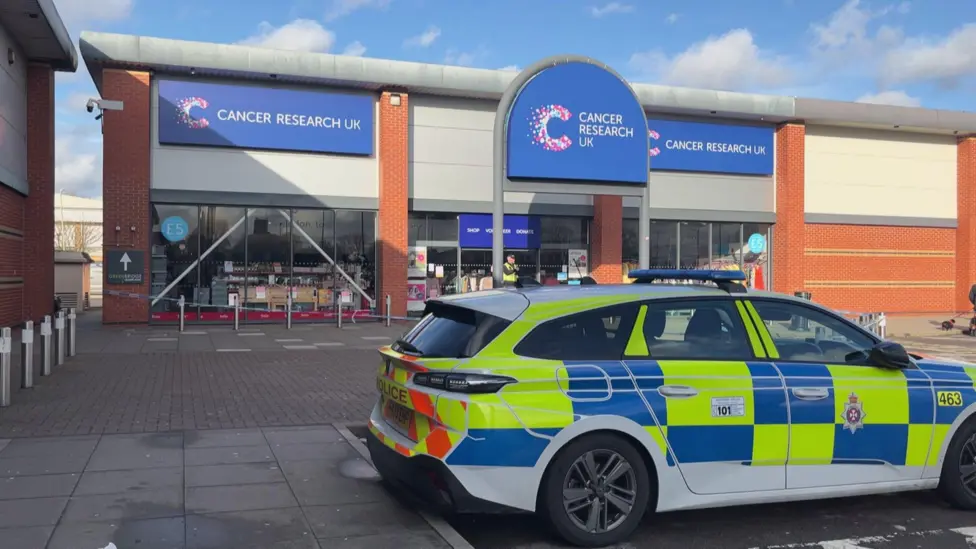
The 'military ammunition' was reportedly handed in to a charity shop in a small bag
A large section of a retail park was temporarily evacuated after suspected ammunition was reportedly handed in to a charity shop.
The items, believed to have been donated in a small bag, were handed into the Cancer Research UK store at the Greenbridge Retail Park in Swindon earlier.
The items have since been taken by bomb disposal experts for testing and a cordon, set up around the building at 10:30 GMT, has since been lifted.
The Cancer Research UK store is expected to remain closed for the rest of Tuesday.
Wiltshire Police said: "The rest of the retail park remains open as usual."
Around five pieces of ammunition were reportedly handed in at the shop, with four of the items being 7.62mm - the standard size for many military small arms munitions.
A fifth item is thought to be a much larger type of round.

The 'military ammunition' was reportedly handed in to a charity shop in a small bag
A large section of a retail park was temporarily evacuated after suspected ammunition was reportedly handed in to a charity shop.
The items, believed to have been donated in a small bag, were handed into the Cancer Research UK store at the Greenbridge Retail Park in Swindon earlier.
The items have since been taken by bomb disposal experts for testing and a cordon, set up around the building at 10:30 GMT, has since been lifted.
The Cancer Research UK store is expected to remain closed for the rest of Tuesday.
Wiltshire Police said: "The rest of the retail park remains open as usual."
Around five pieces of ammunition were reportedly handed in at the shop, with four of the items being 7.62mm - the standard size for many military small arms munitions.
A fifth item is thought to be a much larger type of round.
| Re: Recycling rubbish and charity shops - something of a minefield? Ongoing discussion Posted by Marlburian at 10:30, 1st January 2026 |     |
Sometimes I examine the contents of redundant telephone kiosks that have been turned into book exchanges and usually find a book or two that I want to read. If I know I'll be passing one, I might take a couple of books with me to leave, though I usually select those that are a little grubby, donating the better ones to charity shops. I'm usually scrupulous about the swop: two paperbacks for one hardback, say. Sometimes there's a discrepancy: currently the box (not a kiosk) in Purley-on-Thames owes me one, and I owe one to the kiosk in Hampstead Norreys, though when I "confessed" the latter to a former parish councillor who can be a little peremptory he said not to worry as there would be plenty of donations after Christmas. Once when I was rummaging in the box at Purley a resident walked past and said he'd always wondered what was inside it. (It's on the verge of a side street and is made of wood with a felt-covered lid; some of the contents are a little damp.)
In Whitchurch-on-Thames the kiosk includes a container for used blister packs, with a request for anyone going into Reading to take a handful to leave with Superdrug.
| Re: Recycling rubbish and charity shops - something of a minefield? Ongoing discussion Posted by Chris from Nailsea at 18:52, 31st December 2025 |     |
From the BBC:
North Somerset Council secures refund for faulty recycling bags

Residents were given faulty recycling bags that rapidly faded and ripped
A council has said that it has been given a refund by a company that supplied thousands of faulty household recycling bags.
Residents in the North Somerset Council area were issued with red bags for their plastic and metal waste in March, following a successful trial in November 2024 that aimed to boost recycling. But there were complaints from residents as many of the bags were found to have faded in the sun and were "falling apart at the seams".
Councillor Annemieke Waite said the unnamed company had admitted responsibility for the issues. She added that the authority had reached a "very good agreement" with the supplier and the cost of the faulty bags would be refunded.
The council trialled the bags with 6,000 households last year. Although it received a positive outcome, some residents said the bags were too large. Ahead of the council-wide rollout in March, a batch of smaller bags were ordered from the same supplier and it appeared to be these that deteriorated quickly, said Waite.

Red bags were distributed to residents for plastic and metal waste
She added: "We know that the people who actually had the original bags are still very pleased with them and those bags have never deteriorated, have never faded. So we absolutely know this is something that was completely beyond our control and it was just down to the quality of the bags that were delivered in the second batch."
Residents can order replacement bags on the council website, but are warned that the new bags would come from the same faulty batch, according to the Local Democracy Reporting Service.

Residents were given faulty recycling bags that rapidly faded and ripped
A council has said that it has been given a refund by a company that supplied thousands of faulty household recycling bags.
Residents in the North Somerset Council area were issued with red bags for their plastic and metal waste in March, following a successful trial in November 2024 that aimed to boost recycling. But there were complaints from residents as many of the bags were found to have faded in the sun and were "falling apart at the seams".
Councillor Annemieke Waite said the unnamed company had admitted responsibility for the issues. She added that the authority had reached a "very good agreement" with the supplier and the cost of the faulty bags would be refunded.
The council trialled the bags with 6,000 households last year. Although it received a positive outcome, some residents said the bags were too large. Ahead of the council-wide rollout in March, a batch of smaller bags were ordered from the same supplier and it appeared to be these that deteriorated quickly, said Waite.

Red bags were distributed to residents for plastic and metal waste
She added: "We know that the people who actually had the original bags are still very pleased with them and those bags have never deteriorated, have never faded. So we absolutely know this is something that was completely beyond our control and it was just down to the quality of the bags that were delivered in the second batch."
Residents can order replacement bags on the council website, but are warned that the new bags would come from the same faulty batch, according to the Local Democracy Reporting Service.
| Re: Recycling rubbish and charity shops - something of a minefield? Ongoing discussion Posted by Chris from Nailsea at 13:09, 1st December 2025 |     |
An update on charity shops, from the BBC:
'We made charity shops look like designer stores'

Charity shop manager Ashira Zaneb decided to completely abandon the traditional layout of her store in Greater Manchester for something resembling a designer shop.
The interior design graduate said she want the shop in Northenden to become the kind of place she would choose to visit, and as a result, customers have told "they have never been in a shop like it".
It is part of a growing trend to rebrand the shops which often dominate high streets depleted by established retailers facing spiralling overheads and fierce online competition.
Nora Masefield had no idea she was walking into a charity shop when she entered the doors of a newly-rebranded store in the square of the small historic market town of Poulton-le-Fylde in Lancashire where she lives.
The shop, called Attire and run by Blackpool-based Trinity Hospice, has a prime spot for footfall and specialises in items like high-end menswear and books.
"It's quite urban. It's quite funky. So a lot of people like it because it doesn't look like a traditional charity shop," said Paul Guest, the hospice's head of retail and volunteer services.
An impressed Nora said, as she surveyed an interior which looked like it was set for a photo shoot for an upmarket style magazine, "I didn't know what it was at first, I was pleasantly surprised".
She added: "It looks nothing like the average charity shop - they used to look like jumble sales."
Mr Guest said the aim was to create an "urban masculine" look for the shop, with many props on display "to keep that ambience".
(BBC news article continues)

Charity shop manager Ashira Zaneb decided to completely abandon the traditional layout of her store in Greater Manchester for something resembling a designer shop.
The interior design graduate said she want the shop in Northenden to become the kind of place she would choose to visit, and as a result, customers have told "they have never been in a shop like it".
It is part of a growing trend to rebrand the shops which often dominate high streets depleted by established retailers facing spiralling overheads and fierce online competition.
Nora Masefield had no idea she was walking into a charity shop when she entered the doors of a newly-rebranded store in the square of the small historic market town of Poulton-le-Fylde in Lancashire where she lives.
The shop, called Attire and run by Blackpool-based Trinity Hospice, has a prime spot for footfall and specialises in items like high-end menswear and books.
"It's quite urban. It's quite funky. So a lot of people like it because it doesn't look like a traditional charity shop," said Paul Guest, the hospice's head of retail and volunteer services.
An impressed Nora said, as she surveyed an interior which looked like it was set for a photo shoot for an upmarket style magazine, "I didn't know what it was at first, I was pleasantly surprised".
She added: "It looks nothing like the average charity shop - they used to look like jumble sales."
Mr Guest said the aim was to create an "urban masculine" look for the shop, with many props on display "to keep that ambience".
(BBC news article continues)
| Re: Recycling rubbish and charity shops - something of a minefield? Ongoing discussion Posted by grahame at 19:47, 24th November 2025 |     |
I was under the impression that scrap dealers had to be licenced now, and there needed to be a paper trail of where they obtained stuff therefore, they can't allowed tout for business anymore.
We have one who visits Melksham too. I don't think there's any problem about touting for business - just that they have to be licensed to pass in afterwards, and perhaps have to complete loads of paperwork for each pickup.
| Re: Recycling rubbish and charity shops - something of a minefield? Ongoing discussion Posted by plymothian at 19:33, 24th November 2025 |     |
I was under the impression that scrap dealers had to be licenced now, and there needed to be a paper trail of where they obtained stuff therefore, they can't allowed tout for business anymore.
| Re: Recycling rubbish and charity shops - something of a minefield? Ongoing discussion Posted by johnneyw at 18:12, 24th November 2025 |     |
It's a similar story to CfN's with me. In the wider Johnneyw Towers locale there seems to be a fairly regular lorry that goes around picking up scrap metal. Items picked up from my drive over the years include an old TV Ariel, worn out wok and other pots and pans amongst other things. It seems to be the same outfit that covers not only Redland but a fairy wide area.
| Re: Recycling rubbish and charity shops - something of a minefield? Ongoing discussion Posted by Chris from Nailsea at 16:51, 24th November 2025 |     |
Here in Nailsea, we have the benefit of a latter-day Steptoe & Son, who drive along our road every week in their pickup truck with a loudhailer asking for 'any old iron?'
They aren't choosy - any scrap metal will do (I noticed that the only thing they didn't want was a neighbour's old fridge/freezer).
We don't have to do anything, other than put our unwanted metal items out on the drive, where they can be seen from the road. Even if we don't hear the loudhailer (unlikely), they will come to the front door, just to confirm, "Is that to go?".
Recently, we updated our cooker and removed a redundant overhead extractor fan unit. My daughter and I will put those out on the drive and see how long it takes Steptoe & Son to snap them up.

| Re: Recycling rubbish and charity shops - something of a minefield? Ongoing discussion Posted by Marlburian at 16:23, 24th November 2025 |     |
Earlier this year I bought a new microwave from John Lewis and understood from the company website that it would take my old one for re-cycling. Not so, said the salesperson. My council offers some sort of limited collection service for heavier items, but it's always fully booked.
Then I discovered that Curry's would accept that sort of thing, even if it hadn't been purchased from them, and would even give a £5 voucher (IIRC) against a purchase.
A week after I'd handed in my microwave, another one was fly-tipped close to my house. For a while, no-one did anything about it, though my neighbour said that he'd reported it to the council. Eventually I took it to Curry's - for another voucher.
| Re: Recycling rubbish and charity shops - something of a minefield? Ongoing discussion Posted by ChrisB at 14:31, 24th November 2025 |     |
Are they recyclable?

| Re: Recycling rubbish and charity shops - something of a minefield? Ongoing discussion Posted by Chris from Nailsea at 13:49, 24th November 2025 |     |
...
3. In North Somerset, we were previously required to keep quite separate receptacles for 'plastics' and 'cans'. Now, we have been provided with big red bags, into which all plastic and metal cans should be chucked together.
...
3. In North Somerset, we were previously required to keep quite separate receptacles for 'plastics' and 'cans'. Now, we have been provided with big red bags, into which all plastic and metal cans should be chucked together.
...
From the BBC:
North Somerset Council's recycling bags are 'falling apart at the seams'
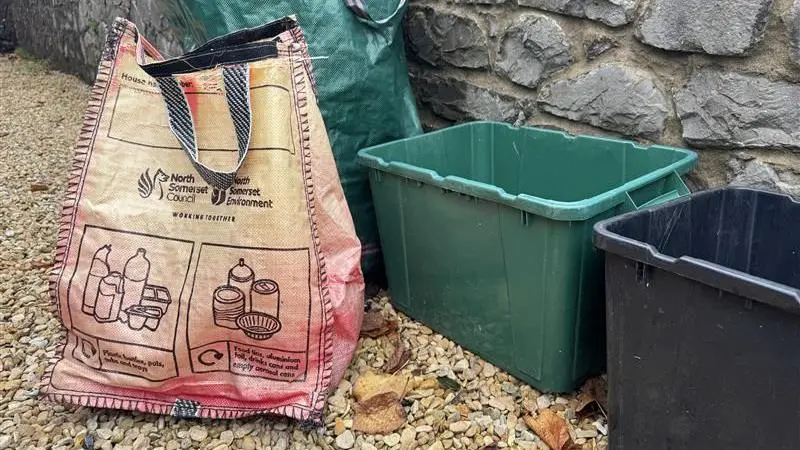
Some red recycling bags handed out by North Somerset council are "falling apart"
A council has admitted that by trying to improve its recycling bags, they had "made it worse" after people reported them falling apart.
North Somerset Council was now in contact with its supplier after some of the bags began "falling apart at the seams."
Council cabinet member for planning and environment Annemieke Waite told a full council meeting on 11 November that the red bags ordered for the trial of the scheme last November were fine and had remained in "perfect condition". But after handing them out to residents, she said they found there was "a distinct problem with them".
"Some of the red bags are fading and failing," she said. "They are literally falling apart at the seams. We are not happy at all."
The council has now sent a team around to check what percentage of the bags are falling apart, as part of the council's agreement with its supplier.
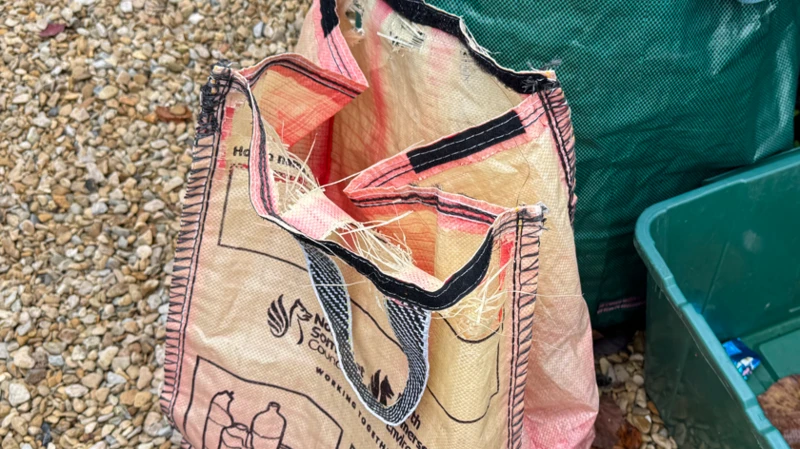
Holes are appearing in some of the bags
"This is a very reputable firm. There are only two firms in the UK that do the bags that we are using and they are being used by so many different councils," Ms Waite said. "We know that we are not the only council that has a problem."
Chair of the council Clare Hunt added: "I know by trying to improve something we seem to have made things a little bit worse."
The red bags for plastic and metal recycling were introduced to 6,000 households in some areas in November 2024 on a trial basis. From the end of March this year they were rolled out to all households across North Somerset.
The bags were introduced to make recycling easier to sort with more space, which also helps improve the value of the recycling North Somerset collects, which is sold to offset the cost of waste collections.

Some red recycling bags handed out by North Somerset council are "falling apart"
A council has admitted that by trying to improve its recycling bags, they had "made it worse" after people reported them falling apart.
North Somerset Council was now in contact with its supplier after some of the bags began "falling apart at the seams."
Council cabinet member for planning and environment Annemieke Waite told a full council meeting on 11 November that the red bags ordered for the trial of the scheme last November were fine and had remained in "perfect condition". But after handing them out to residents, she said they found there was "a distinct problem with them".
"Some of the red bags are fading and failing," she said. "They are literally falling apart at the seams. We are not happy at all."
The council has now sent a team around to check what percentage of the bags are falling apart, as part of the council's agreement with its supplier.

Holes are appearing in some of the bags
"This is a very reputable firm. There are only two firms in the UK that do the bags that we are using and they are being used by so many different councils," Ms Waite said. "We know that we are not the only council that has a problem."
Chair of the council Clare Hunt added: "I know by trying to improve something we seem to have made things a little bit worse."
The red bags for plastic and metal recycling were introduced to 6,000 households in some areas in November 2024 on a trial basis. From the end of March this year they were rolled out to all households across North Somerset.
The bags were introduced to make recycling easier to sort with more space, which also helps improve the value of the recycling North Somerset collects, which is sold to offset the cost of waste collections.
| Re: Recycling rubbish and charity shops - something of a minefield? Ongoing discussion Posted by eightonedee at 23:18, 12th November 2025 |     |
There's a recent video on Chis Spargo's YouTube channel on this (https://www.youtube.com/watch?v=fuwaOiTHl7U) that explains why there are a lot of changes now under way in rubbish recycling by local authorities.
| Re: Recycling rubbish and charity shops - something of a minefield? Ongoing discussion Posted by Chris from Nailsea at 19:38, 12th November 2025 |     |
From the BBC:
North Somerset Council sees 'depressing' overspend on recycling
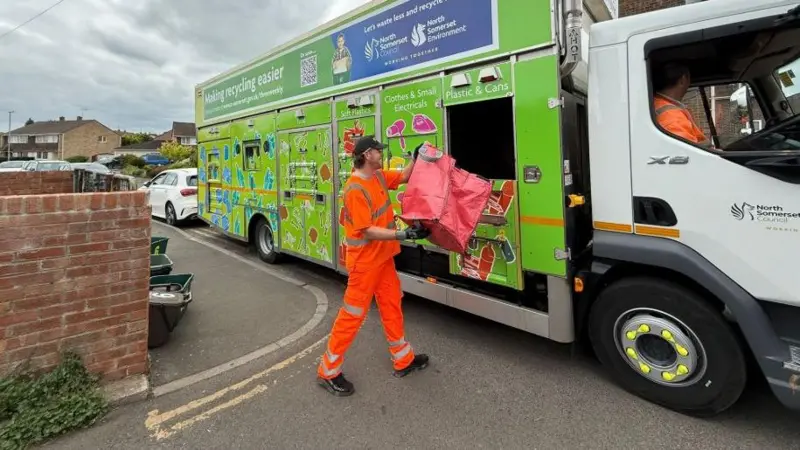
A tonne of plastic that would have sold for £168 in 2024/25 is now only fetching £80 for the council
A council has been left with a "deeply depressing" overspend on waste recycling.
Unlike black bin rubbish, which local authorities have to pay to dispose of, materials from kerbside recycling collections and household waste recycling centres can be sold as a source of income. But North Somerset Council said this year, reduced prices and increased costs have hugely impacted this income stream.
Mickey Green, the council's director of environment, assets, and travel, said: "We are collecting more recycling but due to global […] pressures, it's all worth less." Mr Green said that recycling still generates millions to offset waste services at the council, although less than last year.
The price of plastic in particular has dropped by half since last year, according to the Local Democracy Service. A tonne of plastic that would have sold for £168 in 2024/25 is now only fetching £80. As a result, the council earned £260,000 less this year.
To help with recycling costs, a government spokesperson said £69bn had been available this year for councils to deliver public services, including a 6.4% increase in funding for North Somerset Council compared to 2024. Despite this additional government support, more than 20 plastics facilities have shut down in the country in the past two years.
A report which went before the meeting of the North Somerset Council corporate, assets, transport, and environmental services scrutiny committee (CATE) said the market was starting to improve, but it could take more than a year.
The council is estimated to lose out on another £100,000 because the off-takers used to dispose of wood have relocated from Newport to Barry in Wales.
Steve Bridger, chair of the CATE committee, said it was "deeply depressing" that the money lost due to market fluctuations was more than the council was set to save from its planned cuts to library services, which are "highly likely" to close three local libraries.
North Somerset Council is currently facing a £25m black hole in its budget for the next financial year, largely driven by a rapidly increasing demand for and cost of social care. The council's top finance officers have warned that the council will not be able to balance its budget without "exceptional financial support" from the government.

A tonne of plastic that would have sold for £168 in 2024/25 is now only fetching £80 for the council
A council has been left with a "deeply depressing" overspend on waste recycling.
Unlike black bin rubbish, which local authorities have to pay to dispose of, materials from kerbside recycling collections and household waste recycling centres can be sold as a source of income. But North Somerset Council said this year, reduced prices and increased costs have hugely impacted this income stream.
Mickey Green, the council's director of environment, assets, and travel, said: "We are collecting more recycling but due to global […] pressures, it's all worth less." Mr Green said that recycling still generates millions to offset waste services at the council, although less than last year.
The price of plastic in particular has dropped by half since last year, according to the Local Democracy Service. A tonne of plastic that would have sold for £168 in 2024/25 is now only fetching £80. As a result, the council earned £260,000 less this year.
To help with recycling costs, a government spokesperson said £69bn had been available this year for councils to deliver public services, including a 6.4% increase in funding for North Somerset Council compared to 2024. Despite this additional government support, more than 20 plastics facilities have shut down in the country in the past two years.
A report which went before the meeting of the North Somerset Council corporate, assets, transport, and environmental services scrutiny committee (CATE) said the market was starting to improve, but it could take more than a year.
The council is estimated to lose out on another £100,000 because the off-takers used to dispose of wood have relocated from Newport to Barry in Wales.
Steve Bridger, chair of the CATE committee, said it was "deeply depressing" that the money lost due to market fluctuations was more than the council was set to save from its planned cuts to library services, which are "highly likely" to close three local libraries.
North Somerset Council is currently facing a £25m black hole in its budget for the next financial year, largely driven by a rapidly increasing demand for and cost of social care. The council's top finance officers have warned that the council will not be able to balance its budget without "exceptional financial support" from the government.
| Re: Recycling rubbish and charity shops - something of a minefield? Ongoing discussion Posted by WSW Frome at 15:17, 12th November 2025 |     |
Certain areas of Somerset (including Frome) are part of the national Flexicycle trial whereby soft plastics are gathered as part of the weekly recycling collection.
Charity shops are now quite sophisticated in identifying items which will sell (quickly) and will often reject certain other items for that reason. Most charity shops also have limited space for storage and especially for waste. Any items which the charity has to dispose of are considered as commercial waste and this has to be paid for by the charity through a suitable contractor. It is unlikely that such collections are made daily.
| Re: Recycling rubbish and charity shops - something of a minefield? Ongoing discussion Posted by infoman at 03:49, 12th November 2025 |     |
fair comment Grahame,
but the expression
"one man’s trash is another man’s treasure"
I don't know want Charity shops classify as rubbish.
All I am saying is to turn up at Charity shop in the late afternoon
to find a notice saying "no more donations today" after you have spent most of that day sorting your rubbish
Also a lot of the stuff that is usable can be put on sale early in the day,
and the "rubbish" can be collected for disposal on the day
as opposed to being stored in the shop overnight.
Just a couple of other points,
I notice that automatic announcements on the Elizabeth line are saying please take your rubbish with you.
Although not sure if there are cleaners at either ends of the terminating stations as the trains generally are pretty clean
Finally, milk in plastic bottles only one bottle in ten is recycled.
A better option for OUR environment and OUR World is to have glass bottled milk delivered to your home.
| Re: Recycling rubbish and charity shops - something of a minefield? Ongoing discussion Posted by johnneyw at 10:23, 11th November 2025 |     |
Coffee bean containers; washing tablet containers.
If either of these are soft plastic wrapping then they can be recycled at many Tesco (and perhaps other) supermarkets where there are large containers provided. These can be turned into, amongst other things, railway sleepers, boardwalks etc.
Whilst on the subject of where to recycle items, I had difficulty finding places that would accept old duvets for recycling until I discovered that Dunelm branches take them in the containers near their store entrances and exits.
| Re: Recycling rubbish and charity shops - something of a minefield? Ongoing discussion Posted by GBM at 10:11, 11th November 2025 |     |
Coffee bean containers; washing tablet containers. All advise not to recycle at home (for us in Cornwall, that is).
Our nearest Council tip is a 15 mile drive; plus we have to book a slot these days (to reduce overcrowding).
| Re: Recycling rubbish and charity shops - something of a minefield? Ongoing discussion Posted by grahame at 06:32, 11th November 2025 |     |
Firstly, charity shops an appeal, please take your items in as early in the morning as that it when most volunteers are there to sort the items.
Just a word of caution - my understanding is that most charity shops get lots of donations that they cannot use [at any time of day] and would love you to give them only things good enough for them to sell on. Comment made here because this suggestion is posted under a "recycling rubbish" title and the charity shops for the most part don't want rubbish.
| Re: Recycling rubbish and charity shops - something of a minefield? Ongoing discussion Posted by infoman at 03:52, 11th November 2025 |     |
Firstly, charity shops an appeal, please take your items in as early in the morning as that it when most volunteers are there to sort the items.
The amount of times I have seen notices at charity shops in the afternoon saying "no more donations excepted today"
In the greater Bristol area,South Glos don't take rigid plastic,but Bristol Central does.
| Re: Recycling rubbish and charity shops - something of a minefield? Ongoing discussion Posted by Ralph Ayres at 11:11, 10th November 2025 |     |
It baffles me why people fly-tip next to recycling bins, textile bins etc as though it's somehow less illegal/antisocial to do it there than rather than at any random roadside. It's actually more likely to get them caught on camera as such sites may well be monitored. Probably the same people who dump things outside charity shops at dead of night.
| Re: Recycling rubbish and charity shops - something of a minefield? Ongoing discussion Posted by ChrisB at 19:44, 9th November 2025 |     |
Cherwell is my local council - they have always claimed H&S difficulties for their crews around broken glass, forcing us to bottle banks.
Strange how a change in councillors plus costs associated with cleaning up rubbish dumped around these banks changes opinions....now they've got to persuade their taxpayers to rinse out jars etc before dumping them in their recycling
| Re: Recycling rubbish and charity shops - something of a minefield? Ongoing discussion Posted by johnneyw at 19:04, 9th November 2025 |     |
I didn't realise that there were still areas in the country that don't collect glass from recycling bins. Can't remember how long it's been since I've had to take bottles to a bottle bank in Bristol alough I think it took a few years longer in the South Hams.
| Re: Recycling rubbish and charity shops - something of a minefield? Ongoing discussion Posted by Chris from Nailsea at 18:19, 9th November 2025 |     |
From the BBC:
Cherwell council to introduce kerbside collections for glass recycling
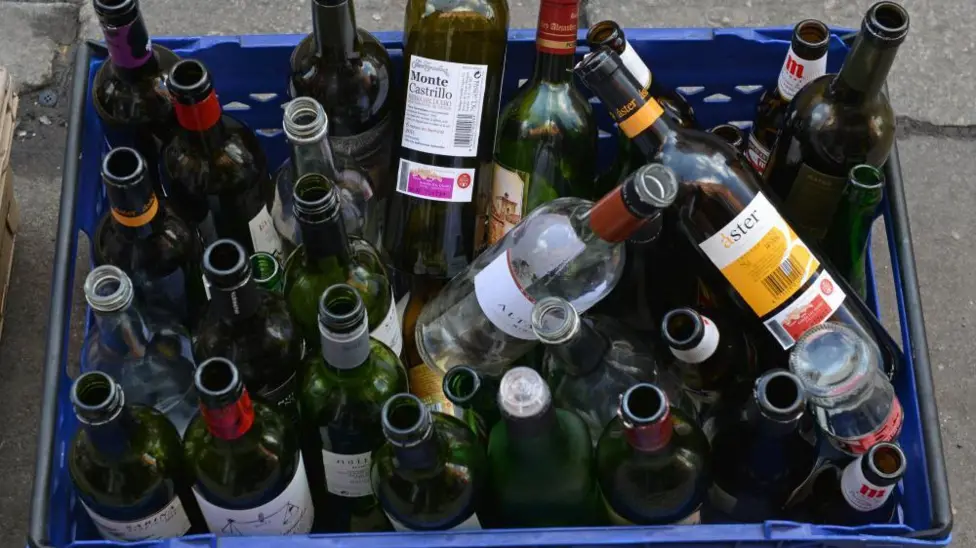
The change will end more than 30 years of residents having to make trips to the bottle bank
Residents in north Oxfordshire will be able to recycle their glass bottles with other waste from next year, after a new kerbside collection was approved.
Cherwell District Council said the change would end more than 30 years of residents taking their glass to bottle banks.
From 1 January next year, householders will instead be able to put it in their blue recycling bin.
The authority said the change would cost between £300,000 and £400,000 due to lost income from bottle banks and higher "gate fees" at waste management facilities.
The change will help the authority comply with the new "Simpler Recycling" law that comes into force in April 2026. It is anticipated the change will improve the district's overall recycling rate by up to 1.5%.
More than 100 bottle banks around the district will be removed, which the council said would help prevent fly-tipping.
Councillor Ian Middleton, portfolio holder for neighbourhood services, said: "The collection of glass from the kerbside is one of the most requested changes to our recycling service, and we have been listening. This change will make it faster and more convenient for residents to recycle whilst reducing the problems associated with bottle banks. The reality is that these have attracted litter and fly-tipping, with the taxpayer having to pick up the costs of the clear-up."
Glass collected in blue bins in Cherwell will be separated from other dry recycling by machines at a sorting centre. Large pieces will be sorted for further processing, while smaller pieces will be used for road aggregate or shot blasting material, which is used to strengthen surfaces.

The change will end more than 30 years of residents having to make trips to the bottle bank
Residents in north Oxfordshire will be able to recycle their glass bottles with other waste from next year, after a new kerbside collection was approved.
Cherwell District Council said the change would end more than 30 years of residents taking their glass to bottle banks.
From 1 January next year, householders will instead be able to put it in their blue recycling bin.
The authority said the change would cost between £300,000 and £400,000 due to lost income from bottle banks and higher "gate fees" at waste management facilities.
The change will help the authority comply with the new "Simpler Recycling" law that comes into force in April 2026. It is anticipated the change will improve the district's overall recycling rate by up to 1.5%.
More than 100 bottle banks around the district will be removed, which the council said would help prevent fly-tipping.
Councillor Ian Middleton, portfolio holder for neighbourhood services, said: "The collection of glass from the kerbside is one of the most requested changes to our recycling service, and we have been listening. This change will make it faster and more convenient for residents to recycle whilst reducing the problems associated with bottle banks. The reality is that these have attracted litter and fly-tipping, with the taxpayer having to pick up the costs of the clear-up."
Glass collected in blue bins in Cherwell will be separated from other dry recycling by machines at a sorting centre. Large pieces will be sorted for further processing, while smaller pieces will be used for road aggregate or shot blasting material, which is used to strengthen surfaces.
| Recycling rubbish and charity shops - something of a minefield? Ongoing discussion Posted by Chris from Nailsea at 15:25, 3rd October 2025 |     |
Firstly, may I state that I fully support recycling whatever we can recycle: we owe it to our planet, and future generations thereon.
However, I have accumulated some experience of the widely different recycling rules imposed by local authorities in North Somerset (where we live), compared with, just for example, the City of Bristol, the South Hams in Devon and Melksham in Wiltshire.
Examples:
1. In the South Hams, they require that used paper envelopes have any plastic windows removed before the remaining paper is put into a specific paper recycling receptacle. In North Somerset, we are told to just chuck all paper and cardboard in together.
2. In Bristol, they require that no food be put in the black wheelie bins - they have even been issued with quirky mock tape measure stickers saying 'no food waist' - and offering fines for any detected breach. In Melksham, I was therefore rather startled to be told to just put any food waste in the black wheelie bin together with 'general waste'.
3. In North Somerset, we were previously required to keep quite separate receptacles for 'plastics' and 'cans'. Now, we have been provided with big red bags, into which all plastic and metal cans should be chucked together.
4. Again, in North Somerset, we were all instructed recently to separate 'soft' plastics (food wrappers, crisp packets, for example) into a separate bag. However, I observed out of my window, when the recycling lorry arrived, that the operative merely tossed that bag of separated plastic into the 'food waste' compartment on their lorry.
This topic was provoked by an article on the BBC:
Recycling sacks to replace bins for thousands
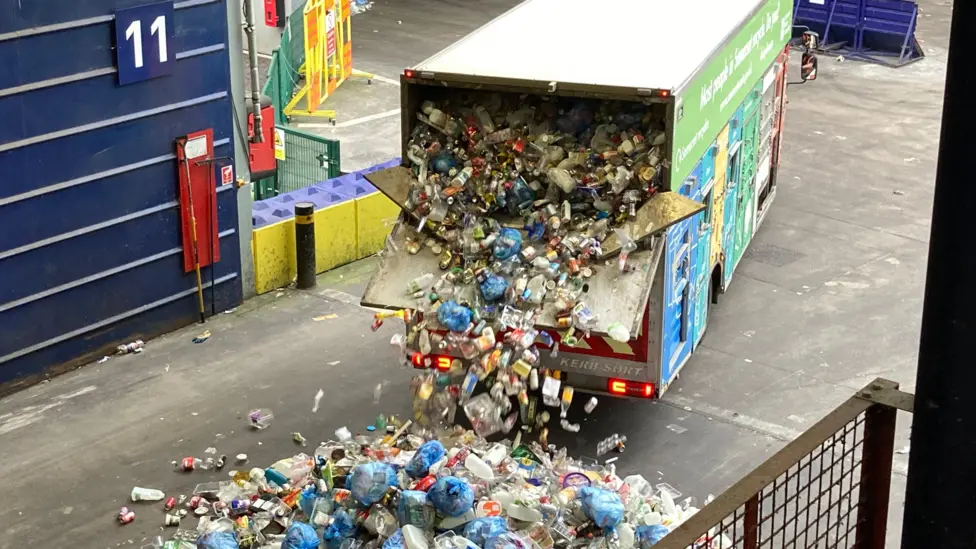
Thousands of residents living in Bristol will receive recycling sacks to put their rubbish in instead of separate boxes.
About 8,000 homes in the city centre and along main roads will be given an orange sack, which all dry material should be thrown into.
The planned change is expected to be rolled out between April and June of next year and will affect properties such as flats above shops, where there is little space on busy pavements to store recycling bins.
Ken Lawson, the city council's head of waste and recycling, said: "It's a positive step to address properties across the city that have maybe been under-serviced and also caused disproportionate issues."
Affected roads would include East Street, North Street and Stapleton Road. Properties there would also get a weekly black bin collection, in black sacks instead of bins, and weekly food waste collections in small brown caddies.
An update on the changes was given to councillors on 23 September and it was confirmed the new sacks would happen independently of the proposed switch to a three-weekly collection for black bins - with a decision on that change due to be made this December.
The changes are expected to cost just under £440,00, which was paid for by a grant from the government's Department for Environment, Food and Rural Affairs (Defra).
A list of all the properties has already been prepared but not yet published.
Mixing all recycling together, known as "co-mingling", used to happen in many parts of the country before residents were asked to separate their materials into different boxes.
The drawback of co-mingling is recycling must be separated by the centres, before the different materials can be sold on to packaging producers, which is a more expensive and inefficient process than getting residents to do it, according to the Local Democracy Reporting Service.

Thousands of residents living in Bristol will receive recycling sacks to put their rubbish in instead of separate boxes.
About 8,000 homes in the city centre and along main roads will be given an orange sack, which all dry material should be thrown into.
The planned change is expected to be rolled out between April and June of next year and will affect properties such as flats above shops, where there is little space on busy pavements to store recycling bins.
Ken Lawson, the city council's head of waste and recycling, said: "It's a positive step to address properties across the city that have maybe been under-serviced and also caused disproportionate issues."
Affected roads would include East Street, North Street and Stapleton Road. Properties there would also get a weekly black bin collection, in black sacks instead of bins, and weekly food waste collections in small brown caddies.
An update on the changes was given to councillors on 23 September and it was confirmed the new sacks would happen independently of the proposed switch to a three-weekly collection for black bins - with a decision on that change due to be made this December.
The changes are expected to cost just under £440,00, which was paid for by a grant from the government's Department for Environment, Food and Rural Affairs (Defra).
A list of all the properties has already been prepared but not yet published.
Mixing all recycling together, known as "co-mingling", used to happen in many parts of the country before residents were asked to separate their materials into different boxes.
The drawback of co-mingling is recycling must be separated by the centres, before the different materials can be sold on to packaging producers, which is a more expensive and inefficient process than getting residents to do it, according to the Local Democracy Reporting Service.

